Samara University is known for its scientific school of specialist training in aviation and rocket-space technics. Sergey N. Tiz, Head of International Office, in his interview spoke about training of international students at the university.
– Sergey Nikolaevich, how many foreigners are studying now at University?
– Currently more than 700 international students from approximately 60 states are studying at Samara University (former SSAU). Most of them study full time, and students from CIS countries usually enter here to study part-time.
– Entrants from which countries apply to university mostly?
– We get a large number of applications from CIS countries – Azerbaijan, Armenia, Belarus, Kyrgyzstan, Tajikistan, Turkmenistan, and Uzbekistan. We have many students from Kazakhstan because Samara Region borders on this state. Central Africa, where aircrafts and helicopters of Russian production are used, is our traditional region as well. Applicants from this region enter the programme “Technical Maintenance of Aircrafts and Engines” most often. Yet recently more and more entrants are interested in engineering specialization, for instance, “Design of Engines or Aircrafts”.
Latin America is rather active. This is connected with the fact that almost all countries of this region develop their own space programmes and they require specialists.
Currently students from Bolivia, Brazil, Guatemala, Honduras, Colombia, Costa Rica, Mexico, Peru and Ecuador are studying at our university. We work with China in the Asian region. Samara University signed cooperation agreements with ten Chinese universities. In future we would like to increase the number of applicants from India and Vietnam.
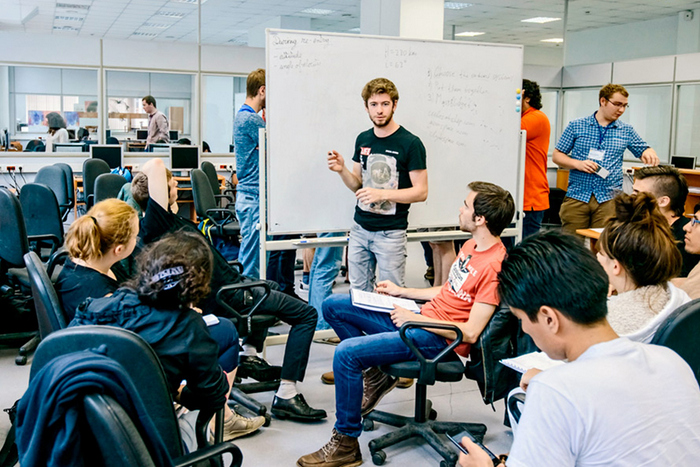
– What fields of study are popular with foreign students?
– If we take technical sciences (besides the ones I have already mentioned), these are “Aeronautical Engineering”, “Missile Complexes and Astronautics”, “Aircraft and Helicopter Construction”; as for humanities , “Law”, “Economics” and “Management” are popular. We have an interesting Master programme in English on satellite navigation; it is headed by a Danish scholar, who is a recognized expert in this sphere. Recently we have launched one more programme in English, i.e. “High-Technology Business Management”. Many applications for this programme are received from Latin American countries.
– How many programmes in English do you have?
– Now we have six – one is a Bachelor degree, four are Master degree programmes, one is a PhD programme. Next year we are planning to open ten more programmes in English. But now we still have more programmes in Russian. Before entering them, some foreigners have to take preparatory courses.
– Please, describe these courses in detail.
– At present 57 foreigners are studying at preparatory courses. The courses last 1 year, i.e. training begins in autumn and lasts till entrance examinations held in summer. During the first term the students of preparatory courses study the Russian language intensively. During the second term they begin to master their majors, the choice of which depends on their further field of study. Students from some countries are not able to arrive in time for the beginning of the courses, so we offer a shorter, intensive preparatory course for them. One can enter preparatory courses either for free or for payment (an annual course costs 120 000 roubles or 2000$).
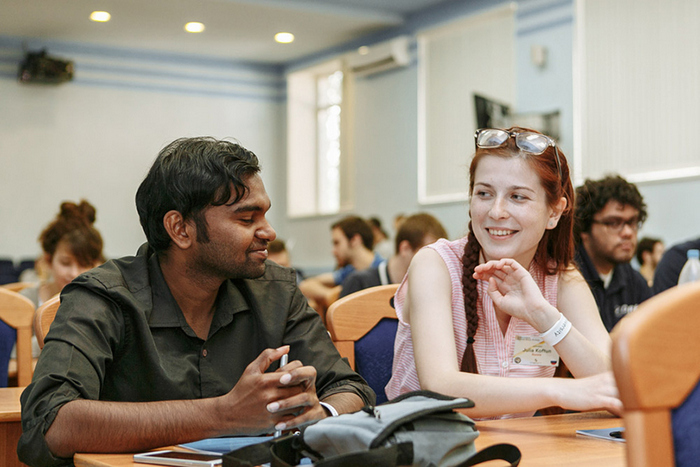

– How many state-funded places for foreigners were given to university this year?
– Samara University was given 92 state-funded places in Bachelor’s degree programmes and 48 - in Master’s degree programmes, all of the vacancies are filled.
– What are you doing to attract and enrol international entrants?
– Our university has frequently participated in education exhibitions before, but now we organize our own career guidance events for entrants, we consider these events to be more effective. Sometimes we collaborate with the offices of Rossotrudnichestvo, with embassies, and recruitment agencies. Recently we have had promotional tours to Kazakhstan and Belarus. The programme was the following: first we held a popular science educational programme about space, then spoke about the university educational programmes and held “Samara University Olympiad”.
– Please, tell us about your Olympiad in detail.
– Currently we hold Olympiads in three subjects, i.e. Physics, Mathematics and Russian. Entering our university, the winners get ten additional points. Those who win all three Olympiads receive the opportunity of free education at our university. We try to help international entrants who want to study with us. For instance, in Tajikistan schoolchildren get their school leaving certificate later than in Russia that is why they cannot submit documents to our university on time. We selected talented schoolchildren at the Olympiad and turned to their national Ministry of Education with the request to award certificates earlier. Many schoolchildren come to our Olympiad to get to know different types of tasks and to try their hand at them. On the whole it is a useful experience which allows them to assess their level of preparation.
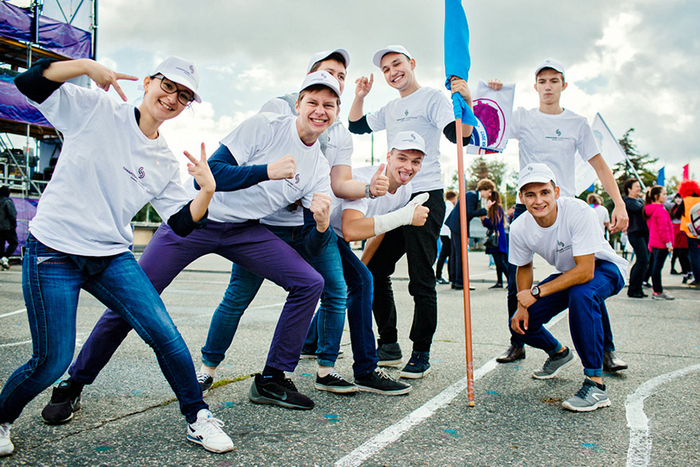
– Do you arrange summer/winter schools?
– We have several short programmes; they take place at different times. The most popular one dealing with experiments in space has already existed for 12 years. Last year there were 200 student applications from all over the world for 40 places. We plan to develop this school, want to make the “Factory of nanosatellites” – a series of courses covering all the stages of satellite creation – from setting the task and development of a project to its realization. There is an international engineering school; within this programme there is a two-way exchange program with the University of Stuttgart.
We held a school on High technology management as well, where we invited lecturers from the leading universities of Great Britain. In 2016 we organized a language school for the first time, the programme consisted of several stages, and there were about 80 participants. In general, we have many short programmes on various subjects. Entrants can register online, indicate their interests and we shall send a letter when time of enrolment to a suitable programme comes.
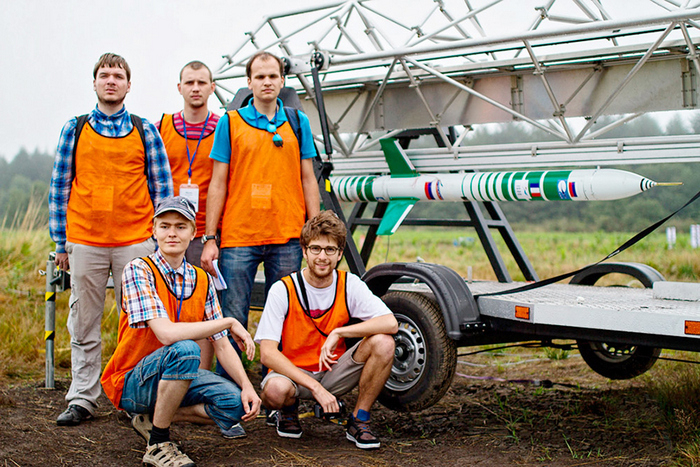
– Do you have the Russian language courses?
– We do not have such courses, but we hold a short adaptation programme (80 hours) for international students who have just come to university. We teach them simple phrases in Russian, so that they could communicate in everyday situations.
– Please, tell us a little bit about the city where the university is situated.
– Samara is situated in the central part of Russia, on the bank of the river Volga. The city was founded in XVI century, it was an important trading centre of that time. Now its population is more than 1 million people. Till 1991 Samara was a “closed” city, there were many organizations making classified developments including space and aircraft spheres. Now Samara can be well calleda European city with the developed infrastructure. We are hosting the 2018 FIFA World Cup, we are preparing actively for this.
– How is students’ daily life organized at your university?
– We have twenty dormitories with different levels of comfort; all of them are not far away from university buildings. We are planning to open one more in 2017. We try to lodge students of different nationalities together, this assists their quick adaptation.
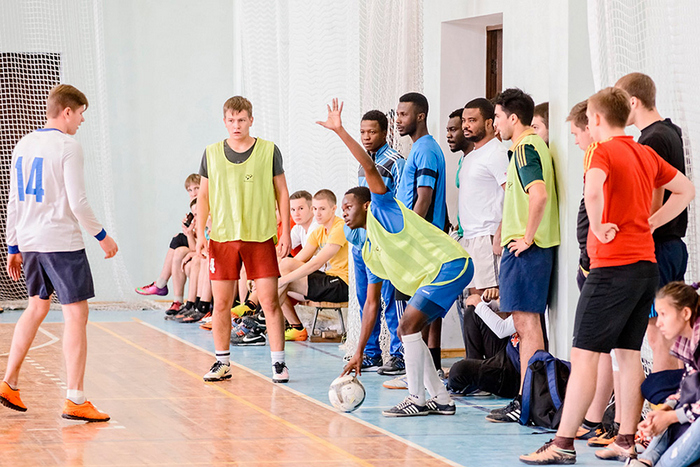
– How do students spend their leisure time?
– We have two swimming-pools, 5 gyms, a tennis court and many other facilities. In winter students ski, on May 9 we hold an annual international championship in mini football, teams from different countries participate in it. In 2016, for instance, the representatives of Tajikistan won. By and large, we have many student organisations: photo club, Variety Show Theatre, and even a yacht club. There is a club of international students, several national communities that support fellow-countrymen.
– What advice on university entrance could you give to international entrants?
– It is necessary to meet the deadlines of entrance exams. We send all the necessary information to the entrants who submitted their application forms. I also advise to pay special attention to the regulations of the Russian Federation migration legislation, there are several nuances there. It is important to approach the choice of a field of study with responsibility. Some students try to change it after entering the university and this is rather difficult, especially for those who study for free. If you have any questions, it is better to turn to the staff of Samara University for explanations beforehand, we are always glad to help.
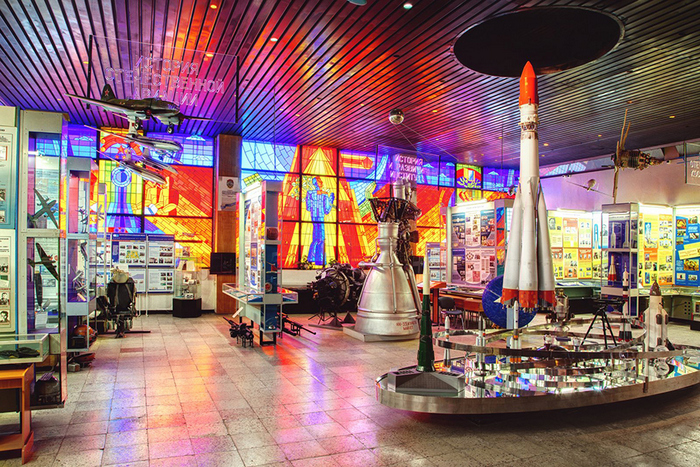

– What are the advantages of studying at your university for international students?
– Our students can become familiar with the cutting-edge space technologies and realize the most challenging scientific projects together with the leading specialists. We collaborate with The Progress Rocket Space Centre, which is the only enterprise in the world producing carrier rockets for injection into orbit of astronaut-inhabited spacecraft. There are achievement-based grants for excellent and good students studying for free. In some cases our university can provide financial support for talented international students.
The University has the Aircraft Engines History Centre; samples of aircraft and rocket engines are collected there, they can be viewed, touched, one can figure out the peculiarities of their construction. We have our own airfield where students go for internship right after the first year; they work directly with aircrafts and helicopters. I should say that the main advantage of studying at our university is the fact that students can not only get full-fledged theoretical information, but practical experience as well. Besides, they can realize their own projects. The proof for it is four satellites on the Earth orbit; they were created by the students of Samara University.
Source: studyinrussia.ru
 RU
RU  EN
EN  CN
CN  ES
ES 